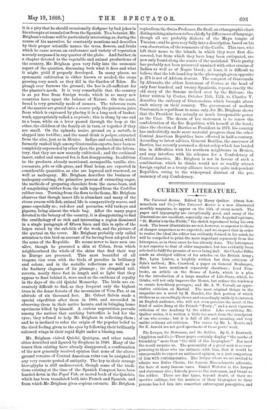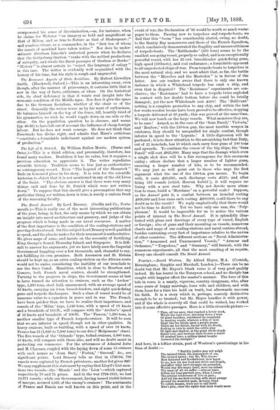The Lawyer, the Statesman, and the Soldier. By G. S.
Bout-well. (Appleton and Co.)—These pages certainly display "the marks of friendship" more than "the skill of the biographer." Nor need the result surprise us. The personality of a great man is so over- powering to those who are intimate with him, that it would be unreasonable to expect an unbiassed opinion, or a just comparison of him with contemporaries. The lawyer whom we are invited to admire was Rufus Choate, the famous Massachusetts advocate, the hero of many famous cases. Daniel Webster is the lawyer and statesman also ; Lincoln poses as the statesman, and Grant as the soldier. These are fine types, beyond doubt, of their re- spective callings, but the nearness of their biographer to their persons has led him into somewhat extravagant panegyrics, and overpowered his sense of discrimination,—as, for instance, when he claims for Webster "an imagery as bold and magnificent as that of Milton, and as true to Nature as that of Shakespeare ;" and numbers. Grant, as a commander, in the " first ten of whom the annals of mankind have taken notice." Nor does he under- estimate Abraham Lincoln's oratorical powers when he declares that the Gettysburg Oration "ranks with the noblest productions of antiquity, and rivals the finest passages of Grattan or Burke." "History" is almost certain to "reject the language of eulogy" in this case. The writer is evidently well acquainted with the history of his time, but his style is rough and ungraceful.



































 Previous page
Previous page